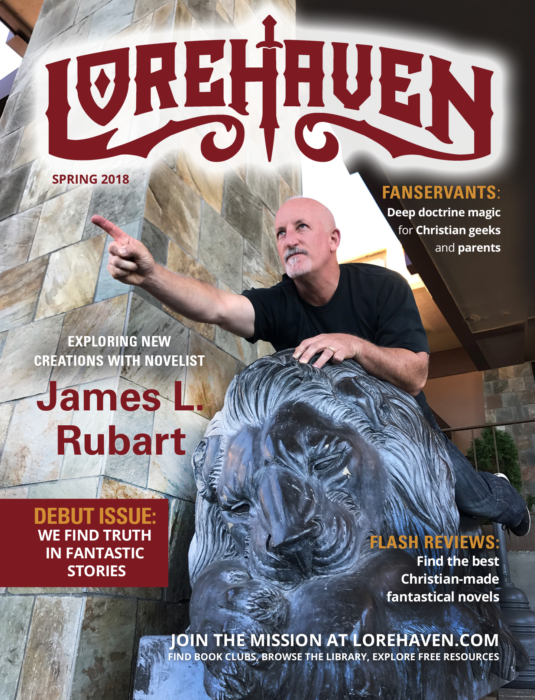Popular Fantasy Chases the Four Horsemen of the Apocalypse
For two thousand years, the four apocalyptic horsemen of Revelation 6:1–8 have captured the imaginations of non-Christians and Christians alike.
But these days the four horsemen seem to be almost entirely absent from Christian fiction. While non-Christian authors take these images and run with them, Christians have let their own Bible’s concept lie dormant.
In Revelation 6, God shows the horsemen to the apostle John. Each horseman is associated with one of the first four seal judgments God unleashes on the world. Each horse’s color embodies a primal force of division and destruction: Conquest, on a white horse; War or Strife, on a red horse; Famine, on a black horse; and Death, on a pale horse.
However, most fictional versions don’t strictly follow this list. Most stories usually drop Conquest. They combine this horseman with War, or replace it with Pestilence, which appears nowhere in Revelation 6. Sometimes adapters replace Conquest with Strife or make up entirely new horsemen.
You don’t have to look far to find an innovative representation of the horsemen. For example, the television show Charmed shows the horsemen as corporate agents of The Source of All Evil, bent on bringing about destruction by reaching their death goals.
Meanwhile, the TV series Supernatural gives each horseman a distinct personality. Ironically, Death seems the most personable. He’s also the most blasphemous, claiming he’ll one day reap God.
Another TV series, Sleepy Hollow, intentionally uses Revelation 6 and other Biblical passages, but also turns the horsemen into agents of a demon, bent on conquering and destroying the world.
Neil Gaiman and Terry Pratchett famously update the horsemen’s roster in Good Omens, replacing Pestilence with Pollution. Even superheroes have their own takes: Marvel’s ancient mutant Apocalypse always appears with four chosen henchpersons. In the film X-Men: Apocalypse (2016), these are Storm, Archangel, Psylocke, and Magneto.
Novelist Veronica Rossi offers one version of the horsemen that is surprisingly truer to the Revelation account. Her young adult adventure novel Riders focuses on four teenagers who are temporarily given the roles and powers of the horsemen—but in order to stop a group of demons from unleashing hell on Earth.
Okay, so that last part is artistic license. Bear with it.
Still, Rossi’s horsemen follow the actual Biblical roster. Conquest is there. The horse colors are accurate. So is the fact that these figures or forces are unleashed as part of a divine plan. In contrast to the horsemen of Sleepy Hollow, who serve the demon Moloch, the heroes of Riders are chosen by God to fulfill their roles and act as his agents while they are horsemen.
So how come in the last few decades, non-Christians have speculated on the horsemen more than Bible believers?
Maybe we avoid everything in the book of Revelation, at least when it isn’t packaged in literalized form, such as in the Left Behind series. Apocalyptic literature like Revelation presents difficulties for a modern audience, because we’re separated by time and culture from its original context. So the apostle John’s inscrutable images may confuse us. (Or else, we don’t want to start up an end-times debate with Cousin Ben.)
But in this case, good fiction should encourage these friendly debates. Fiction spurs us to think about these issues, even if our question is as simple as, “Do we see these four horsemen only as symbols, or can we interpret them as literal angelic beings or events?”
Many Christians will agree the horsemen are symbols, representing literal events during a seven-year Tribulation, or more generalized moments across church history.
Or maybe we avoid the horsemen because we feel popular culture has appropriated biblical images. In fact, because the world’s ideas of angels, heaven, and even the Rapture have become entrenched in popular imagination, we as Christians may struggle to recall biblical views of these things. Can Christians find anything new in this concept?
Rossi’s novel gives me hope that the horsemen can return to their Biblical roots. But that hope will find its true satisfaction in seeing the Christian fan community embrace this part of their own culture and bring it back home. Perhaps a local pastor is brought face to face with War in his home town? Or maybe a military professional returns to her faith after an encounter she can only describe as biblical?
Remember, the horsemen are part of our story—a story that culminates with the greatest horseman—the King of Kings in Revelation 19.
The world may offer their takes on him and the many smaller parts of his story that capture the imagination. But we as Christians are best equipped to explore that story. It is after all, the story of our Savior. With a faith so filled with supernatural imagery and power, who better to explore those images with our God-given creativity?




































